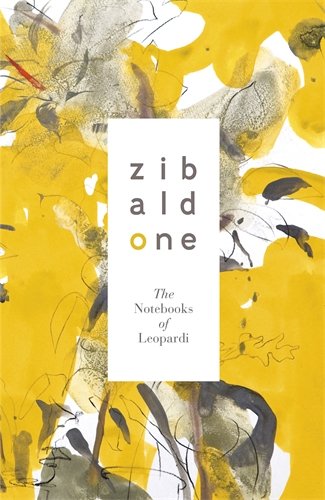Zibaldone: The Notebooks of Leopardi
Select a format:
Retailers:
Summary
Giacomo Leopardi was the greatest Italian poet of the nineteenth century and was recognized by readers from Nietzsche to Beckett as one of the towering literary figures in Italian history. To many, he is the finest Italian poet after Dante.
Leopardi was also a prodigious scholar of classical literature and philosophy, and a voracious reader in numerous ancient and modern languages. For most of his writing career, he kept an immense notebook, known as the Zibaldone, or "hodgepodge," as Harold Bloom has called it, in which he put down his original, wide-ranging, radically modern responses to his reading. His comments about religion, philosophy, language, history, anthropology, astronomy, literature, poetry, and love are unprecedented in their brilliance and suggestiveness, and the Zibaldone, which was only published at the turn of the twentieth century, has been recognized as one of the foundational books of modern culture. Its 4,500-plus pages have never been fully translated into English until now, when a team led by of Michael Caesar and Franco D'Intino of the Leopardi Centre in Birmingham have spent years producing a lively, accurate version. This essential book will change our understanding of nineteenth-century culture.
Giacomo Leopardi (1798-1837), Italy's first and greatest modern poet, was also a critic, philosopher and philologist. His enormous Zibaldone, or philosophical and critical notebook, which many consider one of the great books of the 19th century, was published in Penguin Classics in 2013.
Leopardi was also a prodigious scholar of classical literature and philosophy, and a voracious reader in numerous ancient and modern languages. For most of his writing career, he kept an immense notebook, known as the Zibaldone, or "hodgepodge," as Harold Bloom has called it, in which he put down his original, wide-ranging, radically modern responses to his reading. His comments about religion, philosophy, language, history, anthropology, astronomy, literature, poetry, and love are unprecedented in their brilliance and suggestiveness, and the Zibaldone, which was only published at the turn of the twentieth century, has been recognized as one of the foundational books of modern culture. Its 4,500-plus pages have never been fully translated into English until now, when a team led by of Michael Caesar and Franco D'Intino of the Leopardi Centre in Birmingham have spent years producing a lively, accurate version. This essential book will change our understanding of nineteenth-century culture.
Giacomo Leopardi (1798-1837), Italy's first and greatest modern poet, was also a critic, philosopher and philologist. His enormous Zibaldone, or philosophical and critical notebook, which many consider one of the great books of the 19th century, was published in Penguin Classics in 2013.
